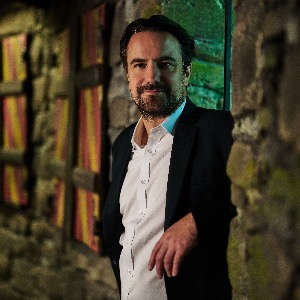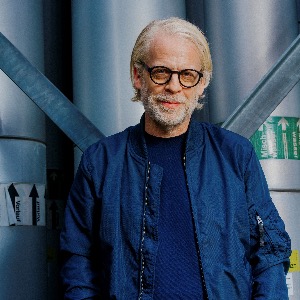
Jan Lachenmayer is a seasoned entrepreneur and innovation leader with nearly 20 years of experience building and managing teams across continents, industries, and high-paced environments. As Chair of the Executive Board of the German Indian Innovation Corridor (GIIC e.V.), he champions Indo-European collaboration in technology and sustainable growth. He is also Co-Founder & COO of FORMATION GmbH, a data-powered startup driving digital workforce transformation, and a Partner at the Berlin Governance Platform. With a career spanning corporate consulting, EU-funded research projects, political advisory, cultural events, and tech startups, Jan combines a passion for people, technology, and big-picture thinking with a deep commitment to co-creation, diversity, and humanistic ideals.
Bridging Nations Through Innovation: Jan Lachenmayer on the German Indian Innovation Corridor
The German Indian Innovation Corridor brings together stakeholders from both countries to foster innovation, collaboration, and sustainable growth. As its Chair, how do you see this initiative reshaping not only Germany India ties but also the broader transnational innovation landscape?
Our mission at GIIC is clear and bold: India + Germany for the world—a ten-year alliance designed to advance innovation, shared prosperity, and geopolitical stability. We see a rare, time-bound window of opportunity to build an Indo-European partnership that can set new global standards for sustainable, open innovation. In a world marked by technological rivalry and geopolitical turbulence, this is the moment to act.
India brings extraordinary digital dynamism and youthful talent; Germany contributes world-leading deep-tech research and advanced manufacturing. Together they can form an Indo-European lighthouse of collaboration, radiating solutions in energy, mobility, health, and AI far beyond their borders.
Yet we are keenly aware that such a transformation is neither automatic nor easy. By bringing 300 top decision-makers to Berlin this October, we aim to spark lasting commitments and to mobilize a global coalition of allies. Our ambition is grand, but our call is humble: only through shared effort can we seize this fleeting chance to reshape the transnational innovation landscape.
You’ve worked at the intersection of technology, governance, and entrepreneurship. In your view, what role can innovation corridors like GIIC play in strengthening global cooperation at a time when geopolitical and economic tensions often hinder collaboration?
Innovation corridors such as GIIC are bridges of trust in an age of fractures. When geopolitical tensions and economic rivalries make cooperation harder, these corridors create neutral, action-oriented spaces where shared opportunities outweigh zero-sum competition.
They rest on values of openness, mutual respect, and shared responsibility. By bringing together people with different histories and perspectives, they foster collaboration that is inclusive and forward-looking. Technology and innovation are seen not as ends in themselves, but as tools to create opportunities, solve global problems, and strengthen peaceful coexistence. Such platforms encourage co-creation and a long-term perspective, showing that collective progress is possible even when politics is polarized.
The stakes are high and the moment is short. If we mobilize now, innovation corridors can anchor a new era of multilateral collaboration, proving that openness and shared prosperity remain possible even in turbulent times.
Berlin is a hub for diplomacy, startups, and cross-sector partnerships. From your perspective, how can the city’s international and diverse ecosystem be leveraged to better connect innovation with diplomacy and governance?
Berlin thrives on a free-spirited mindset that attracts people from every continent who are motivated by purpose and creativity more than by quick profit. Artists, technologists, social entrepreneurs, and policy thinkers come here to experiment and to build ideas that carry meaning. This is fundamentally different from the financial drive of London or New York, the administrative precision of Paris, or the hyper-efficiency of Tokyo.
Yet Berlin has not fully claimed the global role its spirit makes possible. In a rapidly changing world order, the city could stand as a beacon for open, value-driven cooperation—a place where diplomacy and innovation are guided by shared ideals of fairness, sustainability, and mutual respect. If Berlin embraces this potential, it can become a unique arena where global challenges are met through creativity and dialogue rather than competition alone.
By channeling this creative energy into structured dialogues like the German-Indian Innovation Summit, Berlin can turn experimentation into lasting cross-border frameworks, linking technology with global cooperation and shared responsibility.









